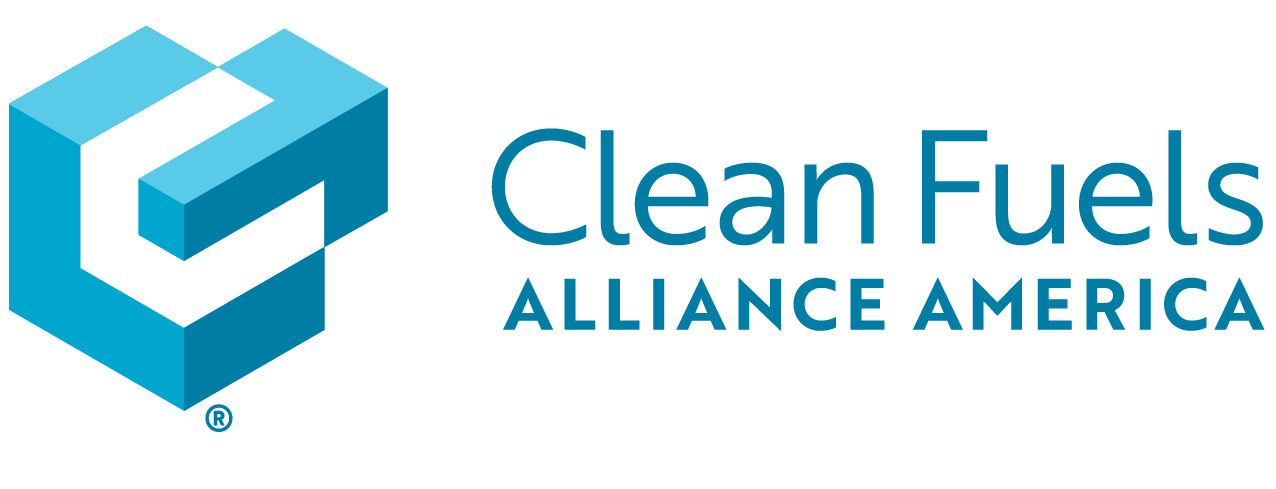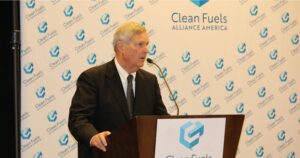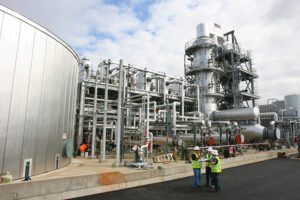WASHINGTON, DC – Today, Clean Fuels Alliance America welcomed a letter sent by Govs. Kim Reynolds (R-IA), Mike Parson (R-MO), and Jim Pillen (R-NE) to EPA Administrator Michael Regan, asking the agency to substantially increase the biomass-based diesel (BBD) and advanced biofuels volumes in the Renewable Fuel Standards for 2023, 2024 and 2025. The letter points out that the Environmental Protection Agency proposed BBD volumes below 3 billion gallons through 2025, even though the U.S. industry produced more than 3 billion gallons in 2022. EPA is expected to finalize the RFS volumes by June 14.
“Considerable investments by biodiesel and renewable diesel producers, oilseed processors, and farmers in our states will be put at risk without a true upward trajectory for the RFS volumes,” the governors write.
“Limiting rural economic development and hindering opportunities for farmers in our states is the wrong approach,” the letter continues. “Adding to the supply of fuel, expanding agriculture markets, and supporting rural economies is the right thing to do right now.”
“Domestic biodiesel, renewable diesel, and sustainable aviation fuel producers, soybean growers and processors, and many other allied industries are looking to EPA to deliver on the promise of an upward trajectory for RFS volumes,” stated Kurt Kovarik, Vice President of Federal Affairs with Clean Fuels. “Our members have made significant investments to grow the industry, and those investments are already paying off.”
“We thank Governors Reynolds, Parson and Pillen for highlighting the imbalance between EPA’s promised trajectory for the RFS and its proposal,” Kovarik added. “In the first three months of 2023, the clean fuels industry increased biodiesel and renewable diesel production enough to completely fill the meager space that EPA proposed for the next three years. EPA must significantly expand the RFS volumes to support the continued growth and availability of advanced biofuels.”
Dave Walton, a member of Clean Fuels Alliance America’s governing board and a farmer from Wilton, IA, stated, “A year ago, our industry cautiously celebrated what EPA called a ‘jumping off’ point that would put RFS volumes on an upward trajectory. But EPA’s proposal did not deliver on that promise; it wouldn’t provide any growth at all if you weigh it against the current pace of industry expansion. Biodiesel producers, oilseed processors and farmers face real-world consequences from low RFS volumes. There are 19 soybean processing projects in the Midwest to expand or build new facilities. As drafted, EPA’s proposed rule could put these investments at risk.”
Missouri Soybean Association President Matt Wright, a soybean grower from Emden, MO, said, “Planned growth of the biodiesel and renewable diesel industry promises substantial economic opportunities for farming communities. Biodiesel production adds nearly $500 million to the value of our state’s soybean crop and supports thousands of jobs. Expected growth has encouraged investment in additional soybean processing capacity that will keep more value of our soybean crop here in our local communities. As capacity and production grows, the economic benefits will increase – unless EPA fails to get the RFS volumes right.”
Greg Anderson, also a member of the Clean Fuels governing board and a farmer from Newman Grove, NE, added, “Homegrown biodiesel and renewable diesel production meets every one of the goals for the Renewable Fuel Standard – cleaner air, energy security, rural economic growth and opportunity. And it is providing drivers a break on fuel prices at the pump by increasing the supply. EPA has no reason to set low goals for the advanced biofuel sector.”
Contact: Paul Winters, pwinters@cleanfuels.org, 202-737-8803
ABOUT CLEAN FUELS ALLIANCE AMERICA
Made from an increasingly diverse mix of resources such as recycled cooking oil, soybean oil, and animal fats, the clean fuels industry is a proven, integral part of America’s clean energy future. Clean Fuels Alliance America is the U.S. trade association representing the entire biodiesel, renewable diesel and sustainable aviation fuel supply chain, including producers, feedstock suppliers and fuel distributors. Clean Fuels receives funding from a broad mix of private companies and associations, including the United Soybean Board and state checkoff organizations.





